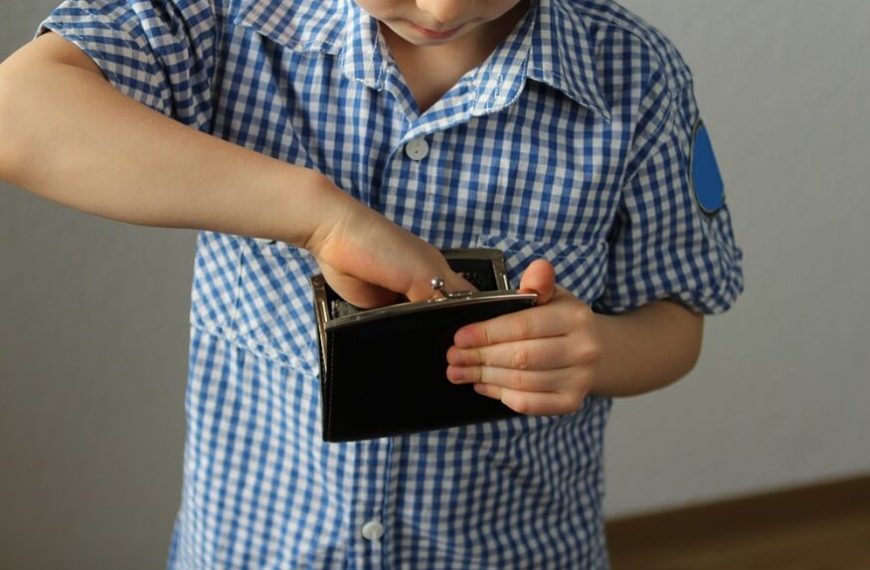Understanding Child Development Stealing
Are you too stressed with your child’s habit of stealing and looking for how to stop a child from stealing? Have you ever spoken to a child psychologist about how to stop the stealing behavior of your child? Yes, there can be more to why kids steal than stealing as a mere habit. Please don’t be embarrassed about discussing child development stealing issues with a child psychologist.
Child development stealing is a behavior that can cause significant concern for parents and caregivers. When children steal, it can also signify a deeper issue. Parents should not take it lightly. It needs to be addressed.
In this article, we’ll explore some of the reasons why kids steal and provide tips on how to stop stealing behavior in your child.
Why Kids Steal: Understanding the Reasons Behind Child Theft
- Developmental Factors
- Family and Environmental Influences
- Psychological and Emotional Triggers
- Peer Pressure and Social Dynamics
Child development stealing is a complex process that involves a wide range of factors. Younger children may not fully understand the consequences of stealing and may see it as a way to fulfill an immediate desire or need. As children grow, they may begin to understand the impact of their behavior, but their impulsive tendencies may still be challenging to control.
Children from families struggling with financial difficulties or with a history of criminal behavior may be more likely to steal. Economic hardship can lead to desperation and a belief that stealing is the only way to get what they need. In some cases, parents may even encourage or model stealing behavior. Environmental factors such as living in a high-crime area or attending a school where theft is normalized can also play a role. Children may be exposed to theft regularly and begin to see it as a normal part of life.
Sometimes, kids steal because they perceive stealing as a way to cope with their emotions or deal with stress. Children who experience anxiety, depression, or trauma may turn to stealing as a maladaptive coping mechanism. Parents and caregivers must be aware of any significant changes in a child’s behavior, as this may be a sign that they are struggling with emotional or psychological issues. Seeking professional help can provide children with the required assistance to stop a child from stealing.
Peer pressure can also be a significant factor in theft. Children who want to fit in with a particular group may feel pressured to steal or engage in risky behaviors to gain acceptance. You can help your children develop strong self-esteem and confidence, making them less susceptible to peer pressure. Encouraging children to participate in positive social activities and surround themselves with supportive friends can also help prevent them from engaging in harmful behaviors.
Signs Your Child May Be Engaging in Theft
- Behavioral Changes
- Unexplained Possessions
- Secrecy and Lying
- Trouble at School or with Friends
If your child is stealing, you may notice changes in their behavior. They may become more secretive, defensive, or anxious. They may also start acting out or getting into trouble at school or in other areas of their life.
If your child suddenly has new possessions you don’t remember buying for them, it may be a sign that they are stealing. This could include new toys, clothes, or electronics. You can help your children develop a strong sense of self-esteem and confidence. Your child may have a reasonable explanation for how they acquired these possessions. However, it may be worth exploring further if they cannot explain where the items came from or seem evasive when questioned.
If your child engages in stealing behavior, they may be more secretive or start lying to cover up their actions. They may also become more defensive or hostile when questioned about their behavior.
Stealing behavior can also impact a child’s relationships with peers and authority figures. If your child is getting into trouble at school or with friends, it may be a sign that they are engaging in stealing behavior.
How to Address the Issue of Child Theft
- If you suspect your child is engaging in stealing behavior, it’s essential to know how to stop a child from stealing. One of the first steps you should take is talking to your child about their behavior and explaining why it’s wrong. However, it’s essential to approach the conversation in a non-judgmental and empathetic manner so that your child feels comfortable opening up to you.
- It’s also important to understand that stealing behavior in children can often be a symptom of underlying emotional or psychological issues. These issues can range from anxiety and depression to attention-deficit/hyperactivity disorder (ADHD) and conduct disorder. To address these issues, you may seek guidance from a mental health professional, such as a therapist or counselor, who can help your child manage these underlying issues.
- Additionally, setting clear expectations and consequences for your child’s behavior is essential. This can help your child understand the seriousness of their actions and their impact on others. However, ensuring that the consequences are appropriate for your child’s age and developmental level is necessary.
- Lastly, it’s important to remember that child development stealing is a process that requires patience and understanding. It’s important to remain supportive of your child throughout this process and to celebrate their progress, no matter how small it may seem. With the right approach and support, your child can overcome this behavior and become responsible and trustworthy.
Conclusion
Child theft can be a worrying behavior for parents and caregivers to address. By understanding the underlying reasons why children steal, you can take steps about how to stop stealing behavior and provide your child with the support they need to develop healthy behaviors and coping mechanisms.
Eurokids preschool is one of the renowned preschools in the vicinity known for its educational and value curriculum. We at Eurokids not only help children learn about the worldly pleasures and knowings but also help parents to imbibe the correct set of values and morals in their children from an early age. To know more about our programs and curriculum, contact us today.















